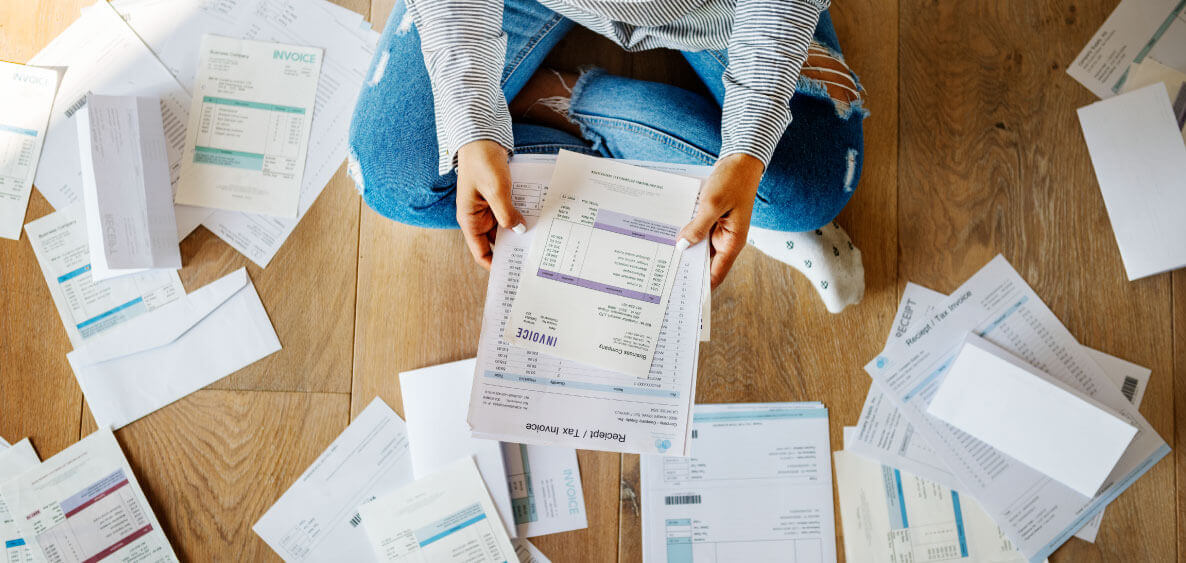
Financial well-being September 12, 2022 By
Hope and understanding for the future, I can trust my financial institution to be the expert.
Prices change yearly; groceries cost more, college tuition increases, and the cost of buying a car or a home increases. When prices for goods and services gradually increase and purchasing power declines, it is called inflation. And during times of inflation, your money buys you less. Inflation affects interest rates, bank accounts, loans, and other financial activities. What effect does inflation have on you, and is there anything you can do about it?
What causes inflation?
It’s common to believe that inflation occurs when there is a rise in the price of a few essential goods or services, such as oil or gas, when in fact, inflation is only present when the overall costs of goods and services rise. There are generally two reasons for these increases: demand-pull inflation and cost-push inflation.
The most common reason is demand-pull inflation. This happens when the demand for goods and services exceeds the ability to produce them. The decreased supply puts pressure on prices, leading to inflation. A less common reason is cost-push inflation. This happens when the supply of a good or service changes, but the demand remains the same.
Positive effects of inflation.
The effects of inflation are not always harmful; when inflation is mild, it is good for our economy. Let’s talk about the positive effects inflation can have:
- Economic growth. When there is more money in our economy, we may see an increase in the overall demand for goods and services, leading to a rise in production and economic growth.
- More spending. Often during inflation, we spend and buy more because we anticipate higher prices in the future. When prices go down, we often put off spending in the hopes that prices will drop further, leading to a contraction of our economy.
- Higher wages. During inflation, the cost of living rises, causing the workforce to demand higher wages in order to keep up. Higher wages often lead to more spending, which spurs the economy.
Adverse effects of inflation.
Inflation can also have some adverse effects on our economy. Let’s talk about them:
- Higher prices for essential goods. During inflation, our standard cost of living is more. When the value of the dollar drops and wages don’t increase, we lose purchasing power.
- Economic uncertainty. In uncertain times we often try to cut back on spending and investing. During times of high inflation, this can lead to deflation and potentially a contraction of the overall economy.
- More significant effects on lower-income people. People who earn less typically spend more of their income on necessities like food and gas. This means that they are more negatively impacted when prices rise. Often these people are less likely to own assets whose values increase during inflation.
What can you do?
While we cannot control inflation, there are ways that we can help protect ourselves from its effects. Investing is the most powerful way to hedge against the impact of inflation.
- Manage Short-Term Debt. Short term interest rates rise as a response to inflation. Usually credit cards are the first to see a jump in the rates that are charged for outstanding balances. You can reduce the pain of these interest rate hikes by either reducing or refinancing these short-term debts.
- Take a Look at Real Estate. Rising rates affect real estate prices. We're seeing that right now as the home market begins to cool a little and prices plateau. When this happens, buying opportunities appear.
- Invest in Yourself. Investing in yourself is one of the most powerful ways to protect against inflation. Increasing your earning potential and income through continuing your education ensures that you keep your professional skills relevant and keep up with the changing economy.
As with all financial decisions, consult your tax advisor, certified financial advisor, or other financial professionals before making any investments or material financial moves.
Inflation is not something you need to be reminded of; you see it every day at the grocery store and the gas pump. We understand that navigating your finances during these trying times may be challenging, but you don’t have to do it alone. There is light at the end of the tunnel, and you have a partner in us to help you make it through.




